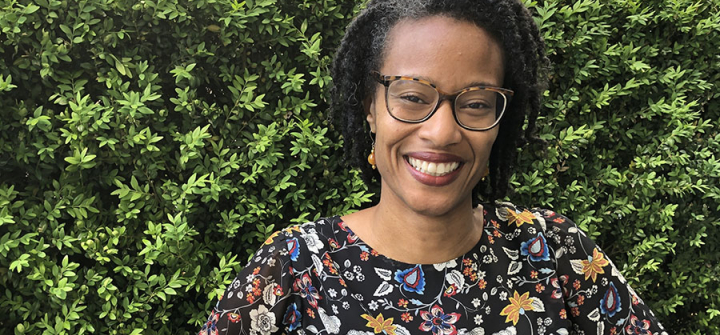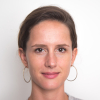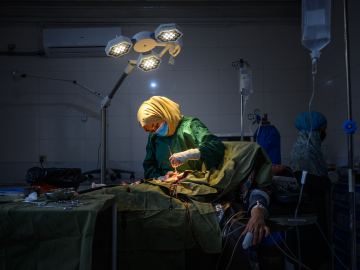Loyce Pace’s Path to the Biden-Harris Transition Team
It’s been a big month for Loyce Pace.
Last week, she was appointed to President-elect Joe Biden’s COVID-19 advisory board—but as she pointed out on Twitter, “I still very much have a day job”—as president and executive director of Global Health Council.
Today and tomorrow, GHC will host its annual summit virtually. The theme: “Pandemics, Politics, and Privilege: The Good, Bad, & Ugly US Legacy in Global Health.”
Ahead of the Global Health Landscape Symposium, GHN caught up with Pace about America’s role on the world stage, her vision for global health, and how she made her way from South Central Los Angeles to Washington—with 15+ countries in between.
Bias and privilege are 2 of the themes of this year’s summit—why was the particularly important this year?
Given the year that we’ve had, we felt even more emboldened to lean into that theme in 2020. Now we’re using words like decolonization, white supremacy, and privilege, and people are keen to engage.
We’re in the middle of a pandemic, so we cannot just look at the idea of power and privilege in the abstract—we can examine it in terms of how it’s played out in for something like COVID-19.
What does that mean for the US?
The US has done a lot of good in the world.
We need to recognize our shortcomings in terms of our government programs or investments, the types of partnerships we have, the assumptions that we make at the government level, and also among stakeholders who carry out that work.
But now, we have to think about whether we are going to have a leg to stand on once we re-enter the world stage, and I think it’s going to have to be an incredibly humble stance that we take.
How has the pandemic challenged these assumptions?
There was an assumption early on that Africa might not make it through a pandemic.
We thought: ‘Show them how it’s done. Because whoa, they were going to really suffer.’ And guess what… it hasn’t panned out the way many people expected.
That’s not to say shouldn’t partner with our brothers and sisters on the continent.
Sometimes when people hear about ‘shifting the power’ they misinterpret that as, ‘Oh, that means you want the US to withdraw from opportunities.’ I believe in international cooperation and solidarity—there’s a way to do it that isn’t just either/or.
You‘re now a member of the incoming Biden administration’s COVID-19 task force. What are your plans and hopes for the new administration?
I am honored and privileged to be a part of this group.
The [incoming] administration has laid out a plan, which is publicly available, to address COVID-19 at home and abroad, including for example, our relationship with the WHO. It’s our job as advisory board members to counsel them on what rolling out each of those areas might entail. I’m looking forward to that.
The President-elect has reiterated that all of this needs to be based on science, no matter what. And yet he and the Vice President-elect readily acknowledge the economic impact and other implications of this disease. I think that's incredibly important—that we don't just have tunnel vision when it comes to COVID-19. It’s both a domestic and international problem and responsibility. The US response is also equally a health and associate economic challenge. So we need to address those areas accordingly.
The problem is vast, which can make it complex, but that's why you have such a diverse group of people coming together to look at the issue from various angles and even bring the networks we have behind us to do the same.
Their focus on equity is also incredibly important. Not just with regard to cooperation at home or abroad but really being mindful of how this disease affects communities differently. People of color, but even older individuals, rural communities—on all the levels they have worse health outcomes. They also are bearing the brunt of lack of education, perhaps food security, and loss of income. It's a big job that we all have.
How has the pandemic changed the field of global health?
Because of the pandemic, everybody knows what global health is, even if they don’t know the term ‘global health.’ My mother now knows who Dr Tedros [is] and asks about him on a regular basis!
That’s a good thing because we’ve been trying to get people to pay attention to our causes for a long time. That brand recognition will hopefully translate to action. But we want it to mean something. We don’t just want to be the popular kids for all these terrible reasons.
That brings me to Global Health Council’s latest report, which offers a vision for the US role in global health. How did that come about?
In this political era, there has been some real reluctance to ask for too much.
But in 2019, we saw the wave of new Congressional members coming to Washington and some of us wondered how we could inspire this new class of elected officials by being bolder in our thinking.
We asked ourselves, ‘If somebody from Capitol Hill came to us and asked ‘If I doubled your money, what would you do with it?’ we have to have an answer.’ That was really the impetus, because we just didn’t have the answer to that.
And what would that doubled investment look like?
It’s not just preventing the next pandemic. It’s also ensuring that health workers and clinics around the world can withstand the shock of another crisis.
So alongside finishing the fight in these areas we know—vaccinations, HIV, and TB—it means considering how all of these things require a strong system as a foundation.
Right. WHO recently highlighted how Thailand’s investment in health infrastructure has been key to its standout COVID-19 response.
Yes. And that’s why it’s not even that sexy what we’re saying—it’s really basic!
But in the States we have this catch up mentality. We are very reactive when it comes to health.
But the interplay of health with other issues like economic status—these aren’t just ideals anymore. When you look at COVID-19, you already see and feel the impact it’s having on families and businesses and global markets.
Yet the whole international affairs budget, I think is so maybe a percent of the US budget.
You’ve worked in 15 countries and are now part of the Biden-Harris transition team. How did you get where you are?
I’m not just some woman who woke up and ended up on the COVID advisory board!
Growing up in inner city Los Angeles, I saw firsthand what health disparities look like and what impact they had.
I was frustrated, and I was at risk for them myself.
One of the reasons I wanted to work globally is because I could again feel and see the impact health gaps were having on people around the world. And I wanted to be a part of solving that problem holistically.
I started at home in South Central. I lived and worked with people who were really on the front lines. I was working with everyone from black fraternities and sororities and churches to Latinx communities. I would be in beauty salons and laundromats and schools, educating people about risk and services and just trying to understand what they needed.
Do people have rides to appointments? Someone take care of their kids while they go?
And I did the same thing when I lived and worked in Africa, in Asia.
I’m so grateful to the people on the front lines who showed me how it’s done.
And then I came back here [to Washington]—because being in the field helped me recognize the value and necessity of systems change and policy. I want to help remove obstacles for those frontline people so that they can keep doing what they do best—which is saving all of us.
Ed. Note: This interview has been edited for length and clarity.
Join 50,000+ subscribers in more than 170 countries who rely on Global Health NOW summaries and exclusive articles for the latest public health news. Sign up for our free weekday newsletter, and please share our free subscribe link with friends and colleagues.
Loyce Pace at the World Health Assembly in Geneva, May 22, 2019. Image: Brian W. Simpson





